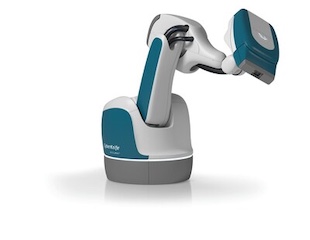- TECHSWU
- Posts
- TECHSWU
TECHSWU


A recent GlobalData survey reveals that while the insurance industry lauds the potential of AI to streamline operations and enhance customer service, consumer trust remains a significant hurdle. The survey, which included over 5,500 participants, found that nearly 74% believe AI can expedite customer service, and 71.
5% see potential for improved performance. Yet, despite these optimistic views, skepticism persists regarding fairness, reliability, and data privacy.
Beatriz Benito, lead analyst at GlobalData, emphasizes the importance of transparency in AI-driven decisions to build consumer confidence. While AI can automate tasks and provide 24/7 support, the human touch is essential when empathy and nuanced judgment are needed.
As insurers navigate this digital transformation, clear communication about AI's role and capabilities is crucial to boosting adoption rates among cautious consumers. Ultimately, a blend of technology and human interaction may be the key to transforming the insurance experience.


In a fiercely competitive job market, job seekers are increasingly turning to AI tools to enhance their applications, aiming to stand out amid a sea of similar resumes and cover letters. While these tools can streamline the job search process—auto-applying to roles or optimizing cover letters—they also raise ethical concerns about misrepresentation of skills and experiences.
Recruiters, like Dani Schlarmann at Ava Labs, are pushing back, asking candidates to sign agreements against AI use in interviews to ensure authenticity. As job applications skyrocketed—with nearly 60% of individuals globally looking for new work—job seekers like Jeremy Pihl share varied experiences with AI, highlighting its benefits and limitations.
Meanwhile, companies like Final Round AI offer innovative, if controversial, solutions like AI interview assistants, sparking debate within recruitment circles. As technology evolves, the balance between leveraging AI and maintaining genuine human connection remains crucial in the job market.

Gif by giffffr on Giphy

In a shocking revelation at a U.S.
Senate hearing, former Meta executive Sarah Wynn-Williams accused the tech giant of deliberately targeting emotionally vulnerable teenagers with advertisements. Wynn-Williams, who previously served as Facebook’s Director of Global Public Policy, claimed that Meta was able to identify when teens felt “worthless or helpless” and would utilize this information to strategically serve ads, particularly for beauty and weight loss products, designed to exploit their insecurities.
Highlighting the company’s priorities, she noted that teens were seen as the “most valuable segment” for advertisers, suggesting a troubling exploitation of young minds. Meta has fiercely denied these allegations, labeling them as “divorced from reality.
” This testimony not only raises serious ethical concerns about advertising practices but also reignites discussions around the tech industry's role in affecting mental health among youth.

A group of ambitious billionaires, including Silicon Valley heavyweights Peter Thiel and Ken Howery, are setting their sights on Greenland to create a futuristic "freedom city." This techno-utopia aims to embrace minimal corporate regulation while tapping into the island’s rich natural resources, including vital rare earth minerals and its icy landscape ideal for cooling AI data centers.
Although the venture promises to accelerate technological advancements and explore innovative ideas like mini nuclear reactors, it faces significant hurdles, notably resistance from Danish officials and local Greenlanders wary of losing autonomy. Despite these challenges, supporters argue that Greenland’s unique conditions, alongside its untapped mineral wealth, could pose major benefits for tech companies craving sustainable, advanced facilities.

Get ready to welcome a new companion into your home this summer! Samsung's highly anticipated Ballie robot is set to hit the shelves, bringing a whole new level of AI technology with it. Initially unveiled in early 2020, Ballie is finally making its debut in the U.
S. and South Korea, equipped with Google’s powerful Gemini AI.
This innovative partnership promises a robot that not only understands voice and visuals but also adapts to its environment to better meet your needs. While the exact price tag is still under wraps, one thing is clear: Ballie is poised to redefine personalized AI companionship.
With its potential to support your health and well-being, this little robot could soon become an essential part of daily life.

A recent study highlights the impressive effectiveness of the CyberKnife System in treating central nervous system (CNS) tumors, underscoring its vital role in improving patient care. Presented at the 2025 Radiosurgery Society meeting, the findings demonstrate how this non-invasive technology, which employs stereotactic radiosurgery (SRS) and body radiation therapy (SBRT), accurately targets tumors for optimal treatment.
With up to 1,000 beam angles and real-time adjustments to account for patient movement, the CyberKnife is revolutionizing how we tackle complex conditions like vestibular schwannoma and trigeminal neuralgia. Long-term data shows a striking 89.
3% local control rate in vestibular schwannoma cases over 25 years and significant pain relief for patients with difficult neurological conditions. "These results affirm the CyberKnife's potential for enhancing not just survival, but overall quality of life, especially for those with limited treatment options,” said Dr.
Seth Blacksburg, emphasizing the System’s game-changing impact on radiation therapy.

In a groundbreaking move, bipartisan members of Congress have introduced the Health Tech Investment Act to streamline Medicare payments for artificial intelligence (AI) in medical imaging. Currently, despite nearly 1,000 FDA-approved AI devices, there’s no consistent Medicare payment framework, causing delays in access for seniors.
Senators Mike Rounds and Martin Heinrich aim to change that, ensuring quicker payments and fostering AI adoption in clinical settings. The proposed legislation would classify all FDA-approved AI devices under a new payment system for a minimum of five years, promoting more efficient diagnoses and better patient care.
The bill has received enthusiastic support from key industry players, including imaging tech advocates and patient advocacy groups, all emphasizing the critical role of AI in enhancing healthcare delivery. The initiative reflects a significant step towards integrating cutting-edge technology into everyday medical practices, promising to elevate standards of care for patients nationwide.